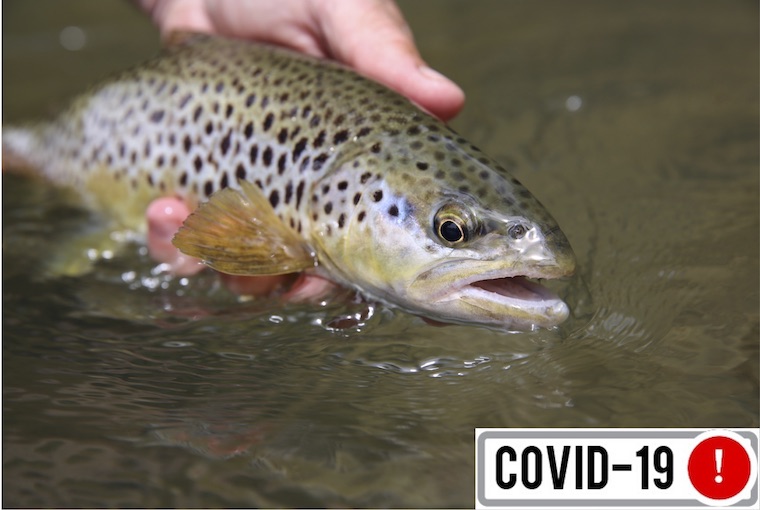
Q: Can fish transmit the virus that causes COVID-19 and should they be handled any differently?
A: COVID-19 is hypothesized to have originally come from an animal source, however current research is not able to confirm the exact source nor how it was transmitted to humans. While some animals have tested positive for COVID-19, with the information that we have to date, it is thought that the risk of transmission from animals to humans is very low. Furthermore, all species of animal that have tested positive for COVID-19 have been mammals.
The important distinction here is the structure of the respiratory system; composed of lungs, a trachea, etc. in mammals, whereas fish have gills. Since COVID-19 is currently thought to be spread through respiratory droplets, the disparity in the respiratory system structure, in my opinion, would further lessen the likelihood of fish being infected with COVID-19.
Fish would carry a greater risk of behaving like a fomite, that is, once a fish has been caught or harvested, humans come into contact with it and run the risk of shedding viral particles onto its surface, then transmitting the virus to other humans however, this risk is also thought to be very low.
In summary, I believe the risk of fish transmitting COVID-19 to be extremely low, and that when fish are passed along from one human to another, we should take the same precautions as with anything else that changes hands from one human to another.
Véronique LePage
BSc DVM MSc, LePage Aquatic Veterinary Services
Associate Veterinarian, Ripley’s Aquarium of Canada
(via Ontario Federation of Anglers and Hunters Fisheries Biologist Adam Weir)
Ask an expert is our new question-and-answer feature. Have a question you’d like to see answered? Submit it by clicking here.






What if tons of infected sewage was poured into the ocean? That’s happening in Newport Bay. All up the southern California coast there are warnings to not swim in sewage.